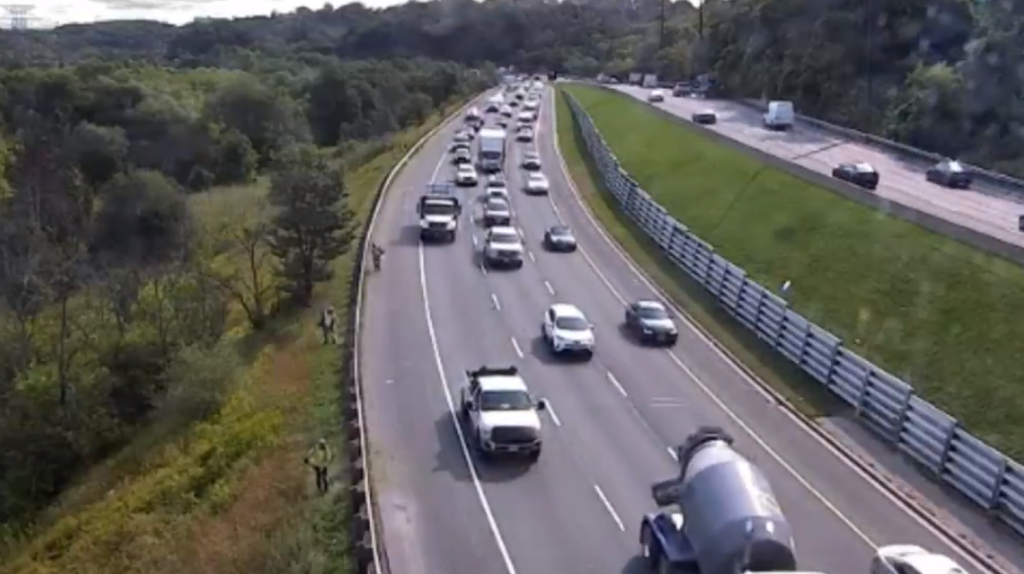Chief says she’ll continue hunger strike until PM and native leaders meet
Posted January 4, 2013 5:27 pm.
This article is more than 5 years old.
OTTAWA – Prime Minister Stephen Harper’s acquiescence to Canada’s protesting First Nations was greeted with joy Friday on Victoria Island, but it remained unclear whether it would temper mounting aboriginal frustration across the country.
Moments before a scheduled news conference by native leaders and opposition critics, Harper declared in a statement that he would indeed be willing to sit down next week for a meeting brokered by the Assembly of First Nations.
Chief Theresa Spence, who has been forgoing solid food since Dec. 11 in hopes of winning an audience with Harper, sounded genuinely delighted with the news — but made it clear she’s not about to declare victory.
“I’m just really overjoyed to hear that the Crown, the prime minister and the government, that they’re going to meet with us,” Spence said from her encampment on an island in the middle of the Ottawa River, in the shadow of Parliament Hill.
“I’ll still be here on my hunger strike until the actual meeting takes place.”
Those protesting across Canada under the banner of the Idle No More movement also made it clear they don’t plan to shelve their plans either.
A major gathering of protesters was also still planned for Saturday in Cornwall, Ont., prompting authorities there to schedule the closure of the International Bridge between Canada and the U.S. for at least part of the day.
On Friday, about 40 demonstrators gathered outside an auto plant in Oakville, Ont., where Harper was making an announcement.
Protest co-ordinator Wanda Nanibush said she’s fearful that Harper’s decision to hold a meeting had more to do with a call for talks from Assembly of First Nations Chief Shawn Atleo than Spence’s ongoing fast or the Idle No More movement.
Harper, she said, needs to prove he is willing to negotiate.
“If the conversation with aboriginal people doesn’t go the way he wants, he walks away from the table,” Nanibush said.
“We’re hoping for Harper and this government to respect the Constitution, which protects aboriginal and treaty rights.”
Indeed, despite pointed questions about it, Harper did not acknowledge Spence’s ongoing hunger strike when asked about the meetings Friday, and remained vague when discussing Idle No More protests.
“In this country, people have the right in our country to demonstrate and express their points of view peacefully as long as they obey the law,” Harper said.
“I think the Canadian population expects everyone will obey the law in holding such protests.”
Still, the fact Harper agreed to meet next week rather than Jan. 24 — the date proposed by Atleo given its significance as the anniversary of last year’s Crown-First Nations summit — was taken by most as a concession of sorts to the mounting political pressure brought by Spence, who on Thursday had insisted on a meeting within 72 hours.
The meeting next week will follow through on last year’s talks with a focus on Canada’s treaty relationships with First Nations and aboriginal rights, as well as economic development.
“The government and First Nations committed at the gathering to maintaining the relationship through an ongoing dialogue that outlines clear goals and measures of progress and success,” Harper said in his statement.
“While some progress has been made, there is more that must be done to improve outcomes for First Nations communities across Canada.”
For his part, Atleo welcomed Harper’s commitment, calling it an essential next step.
“First Nations are ready and committed to the hard work ahead. We have been doing this for decades, and now is the time for change.”
Spence, meanwhile, who has been subsisting on water and fish broth since embarking on her fast 25 days ago, was flanked by family and supporters Friday as she met with reporters, insisting she remains healthy, if fragile.
Looking pale and sounding weak, she said she intends to attend next week’s meeting in person, and won’t decide whether to end her protest until after the meetings are over.
“I’m still healthy, my heartbeat is still strong.”
Spence and the AFN had also asked for Gov. Gen. David Johnston to attend to the meeting, but so far it wasn’t clear whether he’d be there. A spokeswoman from Rideau Hall said they weren’t in a position to confirm anything on Friday.
Mushkegowuk Grand Chief Stan Louttit said it’s important for the Governor General to play a role.
“Treaties were with the Crown, the British Crown, representing Canada back in the day,” Louttit said. “So symbolically, morally, it’s appropriate that the Governor General on behalf of the Queen makes some kind of a statement as well.”
Louttit said Spence won’t end her fast because she’s wary about the history of broken promises between the two sides.
“We receive letters of commitment many times only for nothing to happen,” he said. “We’ve had commitments of meetings before only to see nothing happen. We want certainty.”
A key issue for First Nations leadership is revenue sharing from natural resources development. For example, Spence’s remote community of Attawapiskat, which is in northern Ontario, sits near a diamond mine.
While some band members as well as several new businesses are making decent money from the mine, the community remains impoverished.
— with files from Diana Mehta in Oakville, Ont.










